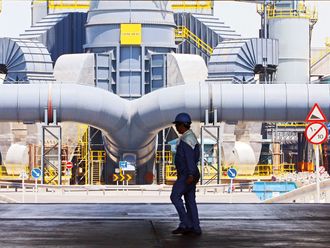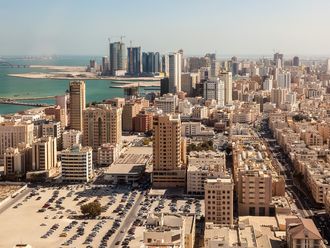Manama: Bahrain’s bicameral parliament will convene on October 14 following the summer recess to start the third session of its four-year-term.
King Hamad Bin Eisa Al Khalifa on Sunday issued a royal order calling the parliament into session and expressed the hope that it “will reinforce democracy and accomplish new achievements for the nation”.
Receiving a delegation of lawmakers, King Hamad said: “The democracy progress is moving forward and we hope, as the legislative authority is about to hold a new session, that more achievements will be accomplished for the sake of citizens, development and the national economy.”
King Hamad said that the two chambers of the parliament had a significant role in bolstering Bahrain’s relations with the international community, Bahrain News Agency (BNA) reported.
Parliamentary life in Bahrain was revived in 2002 with the first elections after a three-decade constitutional hiatus.
The first national elections produced a pluralistic parliament where neither liberals nor Islamists dominated. However, in 2006, Islamists achieved a landslide victory, especially after Al Wefaq Islamic Society, the largest political and religious society, reversed its decision to boycott the elections to ask for more constitutional reforms and fielded 17 lawmakers, all of whom retained their constituencies.
The Islamic Menbar, an offshoot of the Muslim brotherhood, and Al Asala, the expression of Salafism in Bahrain, also came up with outstanding results and, together, emerged as a major force within the parliament.
In 2010, Al Wefaq continued its impressive gains and won 18 seats. However, Islamic Menbar and Al Asala fared poorly, losing out on most of their seats and their influence.
But, amid political protests in Bahrain in February 2011, lawmakers owing allegiance to the Al Wefaq bloc resigned and refused calls by their peers to reconsider their stance. The by-elections held subsequently allowed independent liberals, and more women, to enter the parliament.












